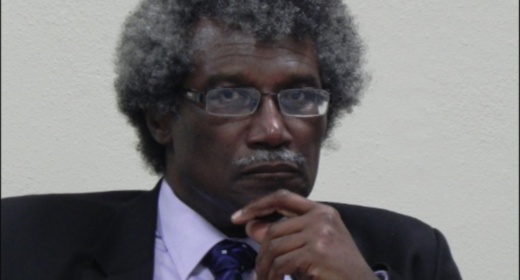
Economic activity in the Eastern Caribbean Currency Union (ECCU) grew by 0.7 per cent in 2013, following 0.2 per cent growth in 2012, Governor of the Eastern Caribbean Central Bank (ECCB), Sir K. Dwight Venner said this week in his 2013 ECCU Economic Review Presentation
The growth over the past two years has reversed the negative growth trends experienced since 2009.
The increase in economic activity was primarily driven by improved performances in agriculture, construction and tourism.
The construction sector expanded by 2.9 per cent following a 4.3 per cent decline in 2012, as public sector construction gained momentum.
In the tourism industry, value added is estimated to have increased by 0.4 per cent due to improvements in major source markets and more intense marketing efforts.
However, this rate was lower than the 1.4 per cent growth recorded in 2012.
Real economic activity in the ECCU is projected to increase by 1.9 per cent in 2014.
This is against the backdrop of the positive signs in the global economy but cognisant of the recent setback in some of our countries, Sir Dwight said.
The expansion in economic activity is expected to be supported by higher levels of output in the construction, hotels and restaurants, wholesale and retail, and transport, storage and communications sectors.
This level of growth is however still below the target growth rate of 3.0 to 5.0 per cent, established by the Monetary Council as the rate needed to transform the economies, and is unsustainable given the prominence of the non-tradable sectors as the contributors to growth, Sir Dwight said.
“It may be safe to say that never before has the Currency Union witnessed such a prolonged period of economic stagnation,” Sir Dwight said.
He said there are three possible scenarios which confront the Currency Union and will weigh heavily on the decisions to be taken.
They are:
1.The global economy remains in its relatively low growth, high unemployment mode, particularly in our main trading partners while the ECCU countries continue with their current policies;
2.Economic activity in the global economy does not return to its pre-crisis levels while the ECCU makes significant policy adjustments; and
3.The global economy goes through substantial restructuring and rebalancing and the ECCU undergoes significant socioeconomic transformation.
Sir Dwight said these scenarios imply major policy choices for the ECCU countries which have related outcomes.
Four possible outcomes can be identified from the economic history and contemporary experience of nation states since the process of decolonisation following the Second World War,: he said.
They are failed or failing states, barebones survival, moderate progress and , socioeconomic transformation .
“The obvious choice for us is of course, socioeconomic transformation, but this is a long term goal and requires resolute focus on a medium to long term strategy and the political commitment and social consensus to get there. We must have a vision of what we want and a systematic, pragmatic and adaptable strategy for achieving our goals,” Sir Dwight said.






When is this man going to retire? There are younger more capable guys ready to fit the roll.
0.7 percent is nothing sir dwight, no one can feel that in their daily lives. This is just sad, but this is what happens when you have power hungry people in the region. We have countries like my own SVG, and St Kitts that performing less than the .07 percent.
Why are you not doing your job and blast these economies and governments for bringing the union to this state Sir Dwight? It’s your job to ask question, and provide assistance and guidance, if you don’t care or if you cannot because you feel that you would be stepping on the toes of your friends in office then it is time to retire.
Because to me you are sounding more and more like an Educated fool everyday, and lord knows we have too much of those already.
According to all professional report and my own observations over all these years, Dwight Venner has been doing a superb job, especially taking into consideration the “special position” of these Small Island Developing States (SIDS)” in the Caribbean. These islands are have been surviving and doing it relatively well especially when compared to European crisis, Asia, Latin America, and Africa.